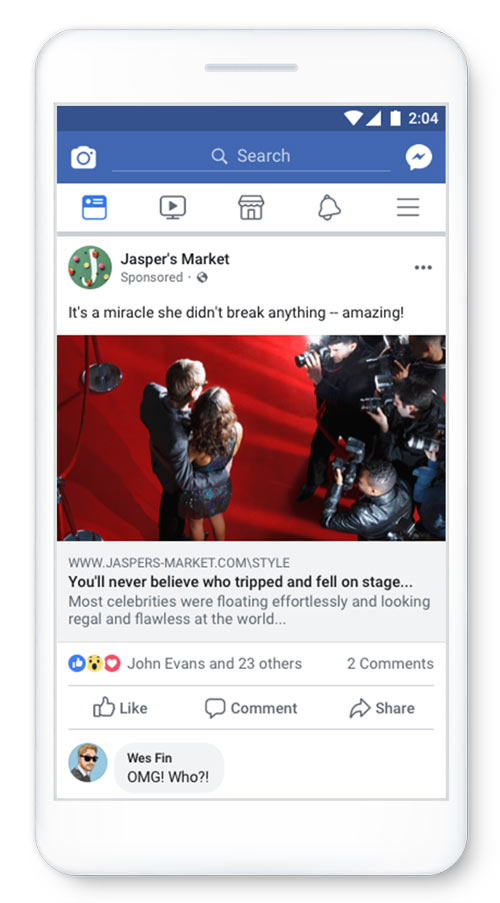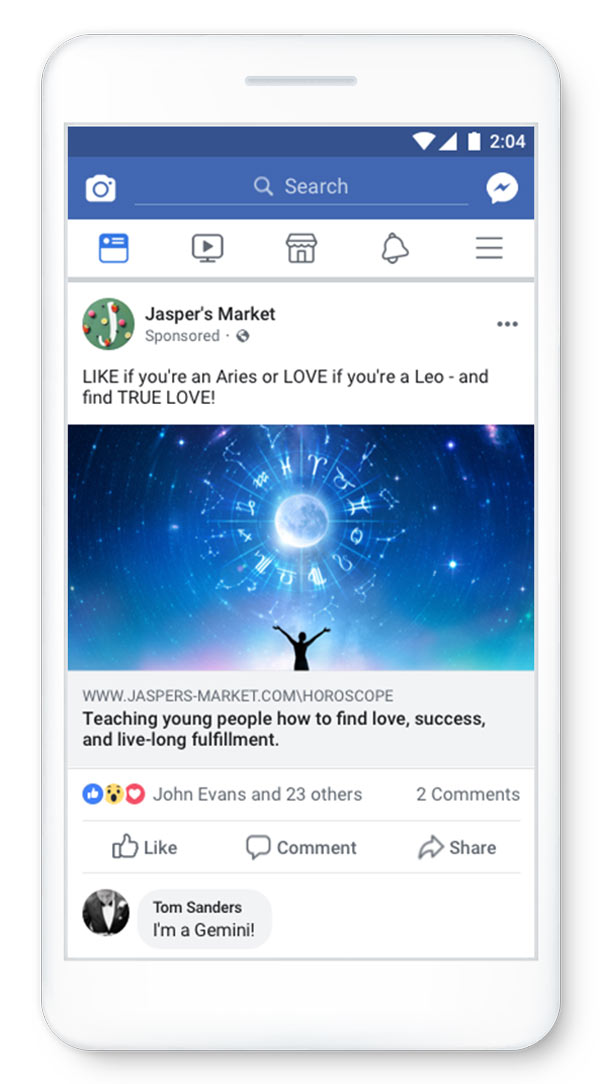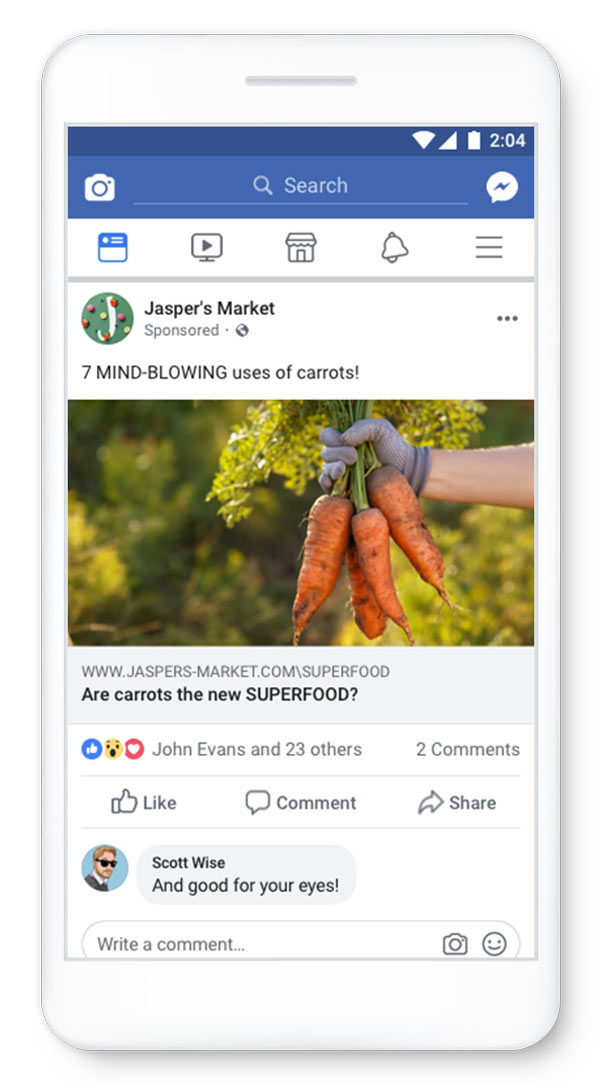Facebook is cracking down on brands using its advertising platform to mislead or trick users with “malicious advertisements”.
As the social network announced this week, it is reducing how often it shows ads it believes are “clickbait” or mislead users, if not outright rejecting them.
As Facebook’s self-serve ad platform has grown, it has encountered growing issues with misleading or sensational ads – including political news spreading fake news. Now, it is working to remedy the problem and ensure users can trust ads shared across the largest social network existing today.
Specifically, Facebook has announced it will be cracking down on these types of troublesome ads:
Ads that withhold information:

Clickbait has become a popular way to get clicks, but it is universally hated because the actual content on the page often doesn’t live up to what the sensational headlines promise. This has grown into deliberately sharing vague ads that often start with “You’ll never believe…” or “You’ll never guess…” Now, any ads using this strategy will be demoted or disallowed.
Engagement bait:

Another popular tactic to get the ever-important likes and shares on Facebook is to specifically use ads to drive these kinds of engagement without delivering any actual content with value. Facebook has already taken steps to prevent this type of advertisement, but it has continued to run rampant across the platform. However, the company says these ads will now be disallowed or receive reduced visibility.
Sensationalized language:

Over-the-top headlines may make people more likely to click, but it leaves a bad taste in their mouth when the content is not nearly as “MIND-BLOWING” as the ad suggests.
Pages that use these strategies regularly:
To reinforce its stance on clickbait or misleading advertising, Facebook is also taking aim directly at the pages which rely on these ads. As the company explains, “multiple ads flagged with low-quality attributes may impact the performance of all ads” from any offending advertiser.
All of these types of ads have become increasingly popular because they drive engagement and traffic, but these types of engagement are arguably worthless because they don’t come from real engagement or appreciation of the ad content.



